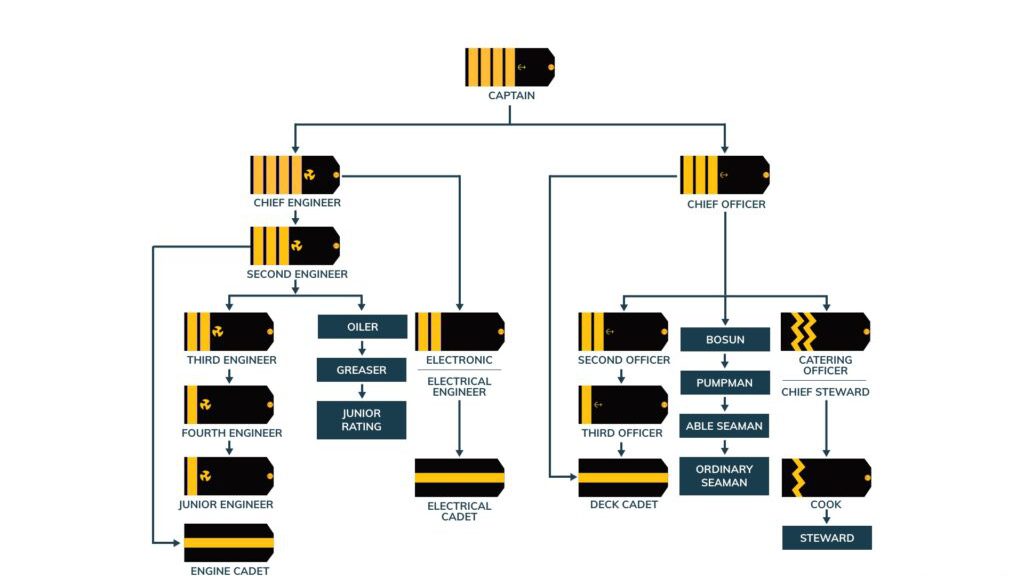Merchant Navy or Software Engineering | Which Career to Choose | 2023
Table of contents
- Choosing a career path is a significant decision that can shape your life in profound ways. In today’s world, two contrasting yet equally fascinating career choices stand out: becoming a Software Engineer or pursuing a career in the Merchant Navy. While these professions may seem worlds apart, they each offer unique experiences, challenges, and opportunities.
- In this blog, we will explore the key differences and similarities between a Software Engineer and a career in the Merchant Navy to help you make an informed choice based on your interests and aspirations.
What is a Software Engineer?
A Software Engineer designs, develops, tests, and maintains software applications, systems, and programs. They use programming languages, tools, and frameworks to create software solutions ranging from mobile apps and websites to complex enterprise software and operating systems.
Software Engineers play a crucial role in the technology industry, contributing to innovation and advancements in the digital world.
What is the Merchant Navy?
The Merchant Navy refers to the commercial fleet of ships and vessels transporting goods, cargo, and passengers across the world’s oceans and seas. A Merchant Navy career encompasses various roles, including Deck Officers, Marine Engineers, Navigators, and Catering Staff, who work together to ensure merchant vessels’ safe and efficient operation.
Software Engineer vs. Merchant Navy| A Comparative Analysis|
Educational Path
- Software Engineer: Most Software Engineers in India begin their journey by pursuing a Bachelor of Technology (B.Tech) or Bachelor of Engineering (B.E.) degree in Computer Science, Information Technology, Software Engineering, or a related field.
Admission to these programs usually requires clearing competitive entrance exams, such as the Joint Entrance Examination (JEE) for IITs or state-level engineering entrance exams.
- Merchant Navy: A career in the Merchant Navy often begins with a maritime-related educational program or joining a maritime academy. Training and certification requirements vary depending on the specific role, such as Deck Officer, Marine Engineer, or Catering Staff.
Admission to these courses is often based on entrance exams conducted by the respective institutes or universities. For example, the Indian Maritime University (IMU) conducts a Common Entrance Test (CET) for its courses.
Want to know about the IMU CET Exam Syllabus and Pattern? Click Here!
Entrance Exam and Selection Rate
Selection Rate Of Merchant Navy Exam
| Indian Maritime University Common Entrance Test (IMU CET) | 2014-2015 | 2015-2016 | 2016-2017 |
| Number of Candidates applying | 14751 | 16694 | 22495 |
| Selected | 740 | 804 | 975 |
Approximately 4,000 candidates are selected from other private colleges.
Selection Rate Of JEE
| Joint Entrance Examination | 2019 | 2020 | 2021 | 2022 |
| Number of Candidates applying | 1147125 | 1023000 | 939008 | 905590 |
| Selected | 13674 | 16053 | 16232 | 16598 |
Securing admission to a prestigious Indian Institute of Technology (IIT) has become exceedingly competitive, with a limited number of available seats and many qualified applicants, making it a formidable challenge for aspiring students.
“According to The Indian Express, In 2019, Out of 5.78 Crore Income Tax Filers for the Financial Year 2018-19, Only 2200 Professionals, Including Doctors, Chartered Accountants, Lawyers, and Others, Reported Annual Incomes of Over Rs 1 Crore from Their Professions”
Salary Comparison
- Software Engineer
| Rank | Salary |
| Delivery Manager | 20-25 Lakhs |
| Group Project Manager | 16-19 Lakhs |
| Senior Project Manager | 13-14 Lakhs |
| Project Manager | 10-12 Lakhs |
| Team Lead | 9-11 Lakhs |
| Technical Analyst | 7 Lakhs (Approx) |
| Senior System Engineer | 5-6 Lakhs |
| System Engineer | 3-4 Lakhs |
Let’s take a closer look at the salary differences between an Engineer in India and one working abroad, specifically in the USA. The numbers reveal intriguing insights into the financial aspects of these professions.
Engineering Career in India
- CTC (Cost to Company): In India, as an Engineer, If your CTC is around 1 crore INR per annum.
- In-Hand Earnings (After Tax): After accounting for taxes and deductions, your annual in-hand income stands at approximately 68 lakhs INR.
- Rent and Living Costs: Rent and living expenses total around 16 lakhs INR annually, leaving you with 52 lakhs INR for the year.
- Work Duration: Engineers in India typically work for the full year.
Engineering Career in the USA
- CTC (Cost to Company): In the USA, an Engineer’s CTC is around 120,000 dollars annually.
- In-Hand Earnings (After Tax): After deducting taxes, you’re left with roughly 80,000 dollars.
- Rent and Living Costs: Rent and living expenses can consume a significant portion of your income, leaving approximately 40,000 dollars for other expenses.
Salary comparison between different companies in the IT sector
Here’s a salary comparison between several service-based and product-based companies in the IT sector, based on the provided information:
Service-Based Companies:
- Infosys: 3.6 LPA (Lakhs per Annum)
- TCS (Tata Consultancy Services): 3.3 LPA
- Capgemini: 3.8 LPA
- Cognizant: 4 LPA
Product-Based Companies:
- Google: 22 LPA
- PayPal: 22 LPA
- Microsoft: 41 LPA
- Amazon: 27 LPA
An engineer earning 1 crore may realize that reaching that figure requires deductions and effort, while a Merchant Navy officer enjoys the simplicity of tax-free income
- Merchant Navy
| Rank | Dry ship (Bulk/RO-RO/Container etc.) | Tanker Ship (Oil/Chemical/Gas etc.) |
| Captain | $8000–$10000 | $9000–$14000 |
| Chief Officer | $6500–$8500 | $7500–$9500 |
| 2nd Officer | $4000–$4800 | $4000–$5000 |
| 3rd Officer | $2400–$3600 | $2600–$4200 |
| Deck Cadet | $350–$750 | $350–$750 |
| Chief Marine Engineer | $8000–$10000 | $9000–$14000 |
| 2nd Marine Engineer | $6500–$8500 | $7500–$9500 |
| 3rd Marine Engineer | $4000–$4800 | $4000–$5000 |
| 4th Marine Engineer | $2400–$3600 | $2600–$4200 |
| 5th Marine Engineer | $350–$750 | $350–$750 |
| Electro-Technical Officer | $2500–$4500 | $3500–$5000 |
Merchant Navy Career in India
- CTC (Cost to Company): For Merchant Navy professionals, the CTC is around 60 lakhs INR per annum.
- In-Hand Earnings (Tax-Free): The entire amount is tax-free for those onboard vessels, leaving you with the full 60 lakhs INR.
- Living Costs: Living costs are approximately 8 lakhs INR per annum.
Merchant Navy professionals typically work for 6 months on bulk carriers, earning 48 lakhs INR tax-free, or for 6 months on oil tankers, earning 60 lakhs INR, or even 90 lakhs INR on LNG carriers.
To get more clear insight on salary of Seafarers, Check out this post:
Promotion
Merchant Navy

- Deck cadets become captains and engine cadets become chief engineers in the maritime industry by following a well-defined career progression. Starting as cadets, they undergo training, earn licenses, and gain practical experience in entry-level roles.
- As they accumulate sea time and demonstrate competence, they rise through the ranks, transitioning from third or fourth officers to Chief Officers for deck cadets and from fourth engineers to Chief Engineers for engine cadets.
- Advancement requires passing exams, developing leadership skills, and fulfilling regulatory requirements. The ultimate achievement is becoming a captain responsible for navigation and ship operation or a chief engineer overseeing the vessel’s engine room and systems, reflecting years of dedication and expertise.
Software Engineer
| Ranks |
| Delivery Manager |
| Group Project Manager |
| Senior Project Manager |
| Project Manager |
| Team Lead |
| Technical Analyst |
| Senior System Engineer |
| System Engineer |
Promotion from a System Engineer to a Delivery Manager in the software engineering field often takes 15 years or more, a duration significantly longer than that typically seen in the Merchant Navy officer’s career progression.
Software Engineer vs. Merchant Navy
| Aspect | Marine Engineers | Software Engineers |
| Work Availability | Fewer job opportunities in the Merchant Navy. | Greater job opportunities in the software industry, with job security. |
| Salary Growth | Stable salaries in the Merchant Navy, but high achievers can earn more. | Potential for significant salary growth based on performance and promotions. |
| Location and Relocation | Merchant Navy professionals can stay in their hometowns during leave periods. | Software Engineers often need to relocate for job opportunities but can work remotely post-COVID. |
| Social Reputation | The social reputation of Mariners has historically faced challenges, but it’s improving with changing societal perceptions. | IT professionals generally enjoy a positive social reputation with increasing recognition. |
| Work Environment | Minimal office politics in the Merchant Navy due to the changing crew on every sailing. | Office politics can be prevalent in software companies with a stable team and management. |
| Work Flexibility | Limited work flexibility while at sea. | Increasing work flexibility in the IT sector, including remote work options. |
Similarities
- Educational Costs: Both careers involve similar educational expenses, with courses like DNS and GME costing 5-8 lakhs INR, akin to premier institutions like IITs.
- Work-Related Travel: Companies in both fields cover work-related travel expenses, whether it’s for extensive sea voyages in the Merchant Navy or project assignments in Software Engineering.
- Insurance Coverage: Employers in both professions prioritize employee well-being by providing insurance coverage, including health, accident, and other relevant insurance.
Conclusion
In conclusion, the choice between a career in the Merchant Navy and one as a Software Engineer hinges on individual aspirations and preferences. Merchant Navy offers adventure, tax-free earnings, and the opportunity to travel the world, but entails lengthy spells away from home. Software Engineering provides a stable work-life balance, vast job opportunities, and the potential for high earnings, yet demands dedication to meet project deadlines. Both paths have their unique rewards and challenges.
Ultimately, the decision should align with one’s passion, lifestyle, and career goals, as each offers a distinctive journey in the dynamic landscape of professional life. Merchant Navy or Airline Pilot |Which Career Path to Choose?|Click Here!
Disclaimer :- The opinions expressed in this article belong solely to the author and may not necessarily reflect those of Merchant Navy Decoded. We cannot guarantee the accuracy of the information provided and disclaim any responsibility for it. Data and visuals used are sourced from publicly available information and may not be authenticated by any regulatory body. Reviews and comments appearing on our blogs represent the opinions of individuals and do not necessarily reflect the views of Merchant Navy Decoded. We are not responsible for any loss or damage resulting from reliance on these reviews or comments.
Reproduction, copying, sharing, or use of the article or images in any form is strictly prohibited without prior permission from both the author and Merchant Navy Decoded.




Hello
Hi Gourav, if you want to know more about the merchant navy then you should checkout our free MERCHANT NAVY GUIDANCE SERIES